
IPPF works to ensure that every woman and girl has the human right to choose to be pregnant or not and we will continue to supply and support safe and legal abortion services and care. We are committed to reducing the number of deaths of women and girls who are forced to turn to unsafe abortion methods. Make Abortion Safe. Make Abortion Legal. For all Women and Girls. Everywhere.
Articles by Abortion Care
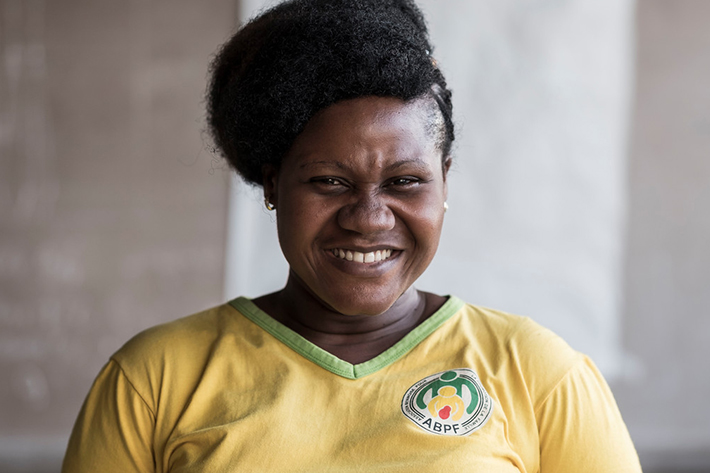
I Decide: A global campaign to break down barriers for safe abortion access
In September 2018, people all over the world joined together to demand safe abortion access to all after we launched our international movement: I Decide What Happens To My Body. It has been truly phenomenal. From handing in petitions to governments, to activists taking to the streets, WhatsApp and Facebook to pursue rights for themselves and others, dozens of IPPF Member Associations (MAs), activists and volunteers have made incredible steps forward – sometimes in challenging circumstances. Changing hearts and minds In Malaysia, activists created a range of informative but fun videos, busting myths around abortion in a campaign that is continuing to build momentum and will continue running for much of this year; Yemen featured on radio interviews and held flash mobs and talks; Morocco has been running a country-wide university competition that will become a yearly event, and; activists in eSwatini (formerly Swaziland) has been utilizing the power of social media to raise (normally unheard) voices, stimulating a country-wide debate on the provision of abortion that has got them invited to consult with the Ministry of Health. And those are just a few of the countries involved. It’s been an incredible journey for us all, and without doubt, each of us has been a crucial component of I Decide’s mission to spread the word on the ground that everyone must have the human right to make choices about their own bodies and futures. Like any movement, there are so many of those who joined in. We were even fortunate enough to get some expert insights from our MA in Sri Lanka, whose advocacy director, Sonali Gunasekera, spoke extensively about the challenges of changing hearts and minds over the issue of abortion in their country. We saw an incredible variety of information produced to normalise abortion for the everyday procedure that it is – from videos on how a safe abortion takes place, a podcast on youth abortion stigma and stories on those who campaigned successfully to lift abortion restrictions in Ireland. We also produced a landmark policy report, Her in charge, on the importance of medical abortion as a means of protecting and promoting women’s health. All this fascinating material and more is still available on the I Decide website. To make I Decide even more effective, over 300 people from all walks of life pledged their voices to have open, honest and frank conversations about abortion with the people around them. Journalists including Lucy Mangan and Hadley Freeman even got involved, lending their support to the campaign by writing about I Decide both online and in print. The work continues... So many people participated in I Decide. And every one of them have been a true champion for basic human rights. This month, the campaign came to an official end but the work does not end here. IPPF, our MAs and activists are committed to ensuring that everyone can have access to safe abortion. IPPF has been working around the world for nearly 70 years, and we’re here for as long as it takes. We hope you will also continue to be a part of breaking the stigma on abortion wide open, until absolutely everyone, everywhere can say: “I decide what happens to my body.”
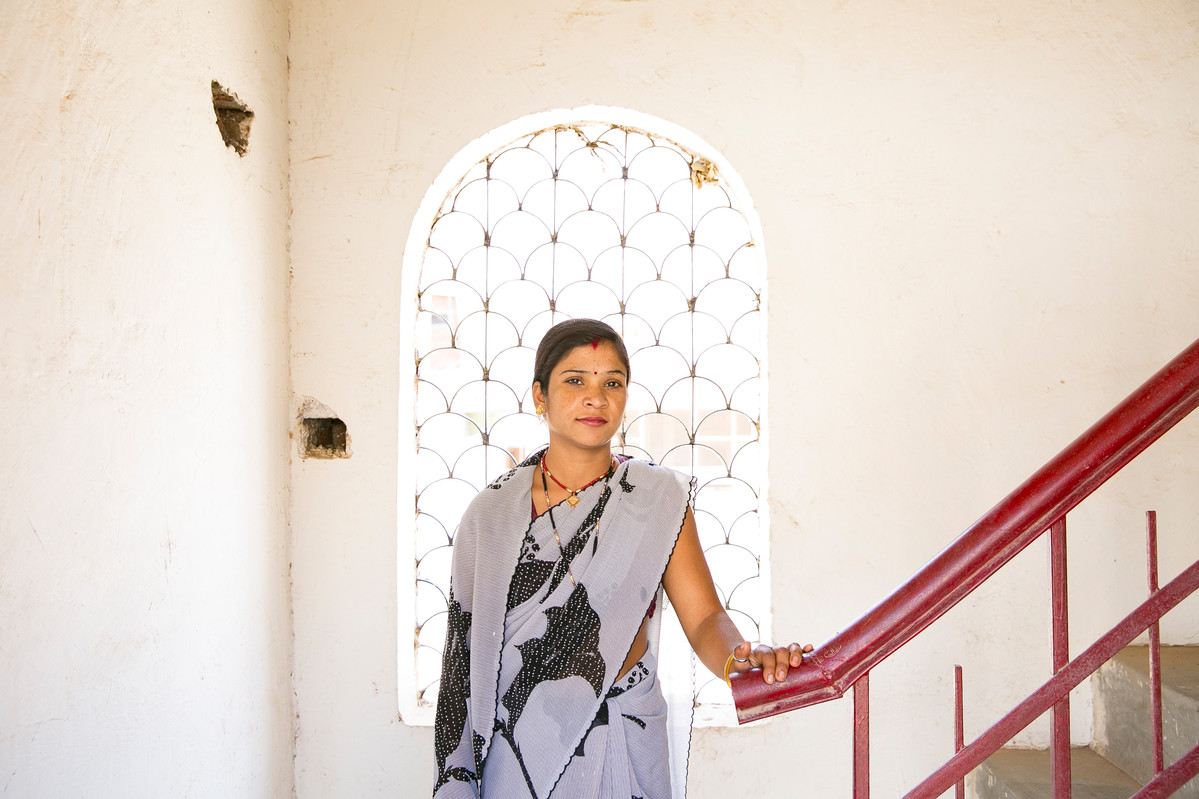
The top 6 priorities of quality abortion services according to women
Safe abortion services are a crucial aspect of healthcare. Estimates suggest that approximately 1 in 4 pregnancies worldwide will end in abortion. But what constitutes quality abortion care for the people that access these services? In order to find out women’s priorities in abortion care, IPPF in partnership with Ibis Reproductive Health interviewed 45 women in Kenya and India. These women identified important characteristics of what they perceived as the highest quality care. Here are the 6 most commonly identified characteristics: 1. Being attended to by kind and polite clinic staff “He made me feel really comfortable… That is in fact what I liked about him… He just told me this is going to be a quick thing. Don’t fear, you are going to be safe.” People accessing abortion services prioritize being treated with respect, politeness and kindness. Positive interactions with clinic staff are highly valued as abortion remains stigmatized in many communities. The interviewed women said they wanted clinic staff to be “encouraging”, “supportive”, “concerned” and “reassuring”. They also mentioned the importance of a warm welcome when they first arrived at the clinic. 2. Receiving an effective and safe procedure “The most important [aspect] is this one on the doctor, the way he attends you, because when he gives you a drug, he gives you the right one, and he offers you the right service.” Women highly value the importance of the efficacy and safety of the procedure as well as the competence of the provider. Many women interviewed also mentioned the importance of accessing quality medication. Women defined a “successful abortion” as one that brings no complications, maintains a woman’s fertility, and doesn’t lead to death. 3. Receiving accurate and clear information “They must make the patient aware of what will happen after taking the tablet and when to call back and ask for help, if there is heavy bleeding then what to do.” People accessing abortion services want to have a clear understanding of what to expect during the procedure. Most of the interviewed women had little or no knowledge about abortion services prior to seeking care so it was important to them to receive clear and accurate information about all aspects of the procedure, including on pre and post-abortion care. 4. Accessing supportive and non-judgmental counselling “When someone just gives you a platform to speak, that one sounds better. I can call that quality.” Women also valued receiving good counselling when they access abortion care. The women interviewed in Kenya particularly valued being listened to, supported during the decision-making process and to be able to share their concerns with the healthcare providers. 5. Being offered follow up services “I got the service beyond my expectations. After giving me that service, they called me here again for a check-up [about] whether I have any problem[s] or not.” (India) Women emphasized that follow-up services are a crucial aspect of quality care. Follow up services are perceived as an indicator that providers care about a woman's health after the abortion procedure. It was considered a useful way to receive detailed information about after-care and to discuss any questions or concerns. 6. Maintaining confidentiality and privacy “I would like [it] to be that I share [my experience] with the health provider I will find in the room. I don’t want that information to be leaked out of that room. So confidentiality is very key.” Privacy is a key consideration for women when seeking abortion services. One woman in Kenya defined a respectful abortion as one that guaranteed confidentiality. Privacy and confidentiality are particularly important as women fear facing abortion stigma from their communities. Blog by Eliana Vaz Martins & Rebecca Wilkins
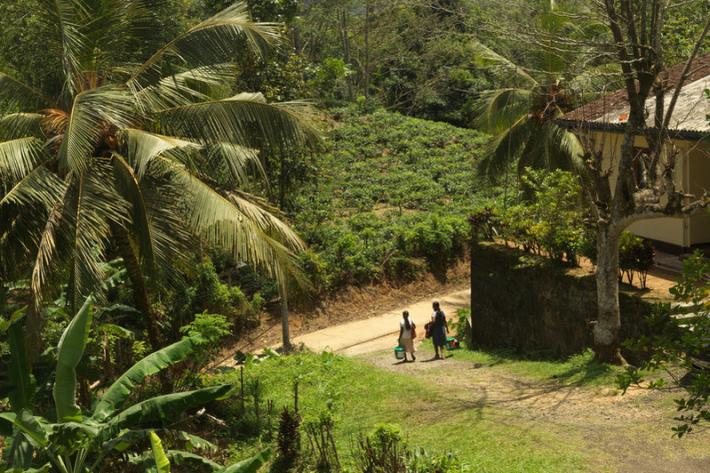
Fighting for safe abortion access in Sri Lanka
“I’ve met many women who were forced to have abortions, and one that stands out is a woman who had gone abroad to work and was raped by the husband in the family for which she worked… she had to come back to Sri Lanka and get an unsafe, backstreet abortion.” – Sonali Gunaseka, Director of Advocacy at the Family Planning Association of Sri Lanka In Sri Lanka, abortion is so severely restricted that people who cannot afford high-quality services, either in the country or else abroad, are forced to risk their lives to get the procedure done in unsafe conditions, or are forced through a pregnancy that they cannot afford, manage, or do not want. Sonali Gunasekera, Director of Advocacy at the Family Planning Association of Sri Lanka (IPPF’s partner organisation in the country) has been working to change people’s hearts and minds there regarding abortion access. She wants women to decide what happens to their bodies, and to have control over their own futures. She wants to prevent people being forced to risk their lives by receiving this form of healthcare in unsafe, backstreet conditions. We spoke with Sonali (pictured below) about access to this vital healthcare service and the impact it has. IPPF: Can you tell us about the context of abortion in Sri Lanka? Sonali: Sri Lanka has one of the strictest abortion laws in the world, which stipulates that abortion is illegal unless the life of the mother is at risk. You must have three doctors’ signatures to agree to this; if not, the abortion is not permitted. Right now, you cannot have an abortion in cases of rape, incest or foetal deformities; but there is some movement to change the law to allow abortion in these cases, which is good. There has been a lot of resistance to this movement, and it is important to bear in mind that even if it does go through, it will be a small change that won’t affect most women who seek access to abortion. This is because they are usually women over 35 years old, who already have two children and do not fall within any of the categories mentioned above. IPPF: How does this affect people who are pregnant and don’t want to be, for whatever reason? Sonali: If you are of the upper-middle class in Sri Lanka, you can go to certain private hospitals and pay for the service. But, if you don’t have the money, you will be unable to access this service and due to a lack of officially regulated information, it is often the case that you will hear about places and procedures by word-of-mouth. These places can be unhygienic, or else the provider could be unskilled. The woman may not be given pain relief, so it can be quite a horrible experience for her, as has been related to me by women that I have interviewed regarding their experiences. Although Sri Lanka’s maternal mortality rate is low, unsafe abortions and their consequences account for a high proportion of the deaths that do occur, and the mortality rate for abortion stands at about 15%. We can legally access post-abortion care, but there’s a lot of stigma around it, so a woman who seeks medical help may be asked all sorts of questions that make them feel judged or afraid of possible consequences. Questions can include things like “How did this happen?” “Why did you go for an abortion?” “Did you not know this is illegal in the country?” So, the women who aren’t deterred by this and do seek help may not disclose that they’ve had an abortion, which means that they may not get the right care. IPPF: Around the world – where it’s legal to have an abortion under these strict circumstances – we’ve seen people dying because it’s difficult to get multiple doctors or lawmakers to agree that these circumstances happened. So what does this possible new law mean for women and girls in Sri Lanka in practical terms? Sonali: About 1% or less seek abortions for incest, rape and foetal deformities. The law is so strict that it requires that you get multiple doctors or a judicial medical officer to give their signature. But doctors will only sign it off if they have absolute proof of rape, incest or foetal abnormality; this makes sign off difficult as the medics could go to prison themselves for allowing the abortion. With rape, it can take our legal system about 20 years before a rape case is finally proved. So, when someone needs to prove rape in a matter of weeks in order to get an abortion, I’m not sure this will be possible. It makes me feel quite angry that these men who put these women through so much trauma have impunity and that they are not prosecuted. The women must prove beyond any doubt that all these things happened; they must go to the judicial medical officials and show their underwear as proof; they must take tests to prove that the hymen has been perforated; all these procedures that are invasive and re-traumatizing because there exists so much doubt and bureaucracy for victim-survivors. It’s just very skewed and unfair; as a gender issue, it is something that I feel very strongly needs to change. IPPF: What’s your experience of the psychological impact of how women are treated when they seek help? Sonali: The experience can be traumatic. I have spoken with women who have said that they receive rude treatment from nurses and also doctors in hospitals. Their self-esteem goes down a lot when they are shouted at and treated like criminals. They may feel isolated and scared and alone because there is stigma around pre-marital sex or sex out of wedlock, so women may feel ashamed and not reach out to a support system, if at all one exists for them. Seeking a source of help and medical intervention itself can be difficult and stressful. There is a lot of discrimination throughout this process. It’s a gender issue, as if it is the case of a relationship, men do not necessarily have to go through any of this stigma, self-esteem issues, or deal with rude doctors or nurses. IPPF: How can we change things? Sonali: Looking at Ireland’s situation, I feel as though having people out on the street protesting and showing their support did a lot. I have so much respect for people who mobilize like this. In Sri Lanka, I think we’ve got to mobilize the public, because if you keep it in the hands of parliamentarians and religious leaders, there is no way the restrictive law and all the negative consequences that come with it are going to change. Contrary to the popular argument, it’s not even Sri Lankan culture, but rather British Victorian values and laws that criminalize women. I think we need to work with women who are understanding and who would be willing to think of their daughters and others close to them who could face similar situations. In the past month in Sri Lanka, I’ve seen a lot of young people coming to the streets and saying: “It is important to take our views into account; the voices of our generation.” So, we need to create mass attitudinal changes through media, and also through innovative ways like street dramas and other ways of working with young people. Do you believe every woman and girl around the world has the human right to decide what happens to their body? Then add your voice to our I Decide campaign.

"I’m so happy I now don’t have to worry about contraception for another five years”
In August 2017, weeks of continued and heavy rainfall across Nepal resulted in flash floods and landslides that affected 36 of the 75 districts. Many people lost their homes or were displaced. It was estimated that of those affected, 112,500 were women of reproductive age, including 8,694 pregnant women. IPPF Humanitarian, through their Member Association, The Family Planning Association of Nepal (FPAN), activated its emergency response system early on. With funding support from the Australian Government, FPAN and IPPF Humanitarian initially mobilised their response in four of the worst affected districts (Sunsari, Saptari, Bardiya, and Dang). Mobile medical camps were established to meet the sexual and reproductive health needs of the affected population, including through the distribution of short and long acting methods of contraception, STI and HIV screening, and GBV referrals. In collaboration with the USAID-SIFPO project, services were then expanded into five more affected districts. IPPF Humanitarian spoke with 21-year old Muna in her home district of Sunsari in Nepal. “I got married at 16 years old and have two children, a four-year-old girl and two-year-old boy. In my caste, we get married early, so my parents took me to get an arranged marriage. I was in the 8th class at the time, and returned to school after I got married, but only lasted one year. My husband works in construction and had to stop working for two weeks when the floods came. When he doesn’t work, he doesn’t get paid, so it’s been very difficult. A FPAN social worker told me about the mobile medical camp today. I used to be on the three-month injectable but today I changed to the five-year implant in my arm. When my youngest child was eight months old I found out I was pregnant again. I decided to discontinue that pregnancy, so I took the five small tablets given to me by my neighbourhood doctor. I was two months pregnant at the time. From this, I had two days bleeding and cramp like pain, and then weakness. I decided to abort that pregnancy because my youngest will still only eight months old, and I didn’t want any more children. If I had more than two children, it would be very difficult to feed and educate them, and would badly affect my body too. I’m so happy I now don’t have to worry about contraception for another five years.” Want to know more about safe abortion access? Join IPPF'S I Decide movement
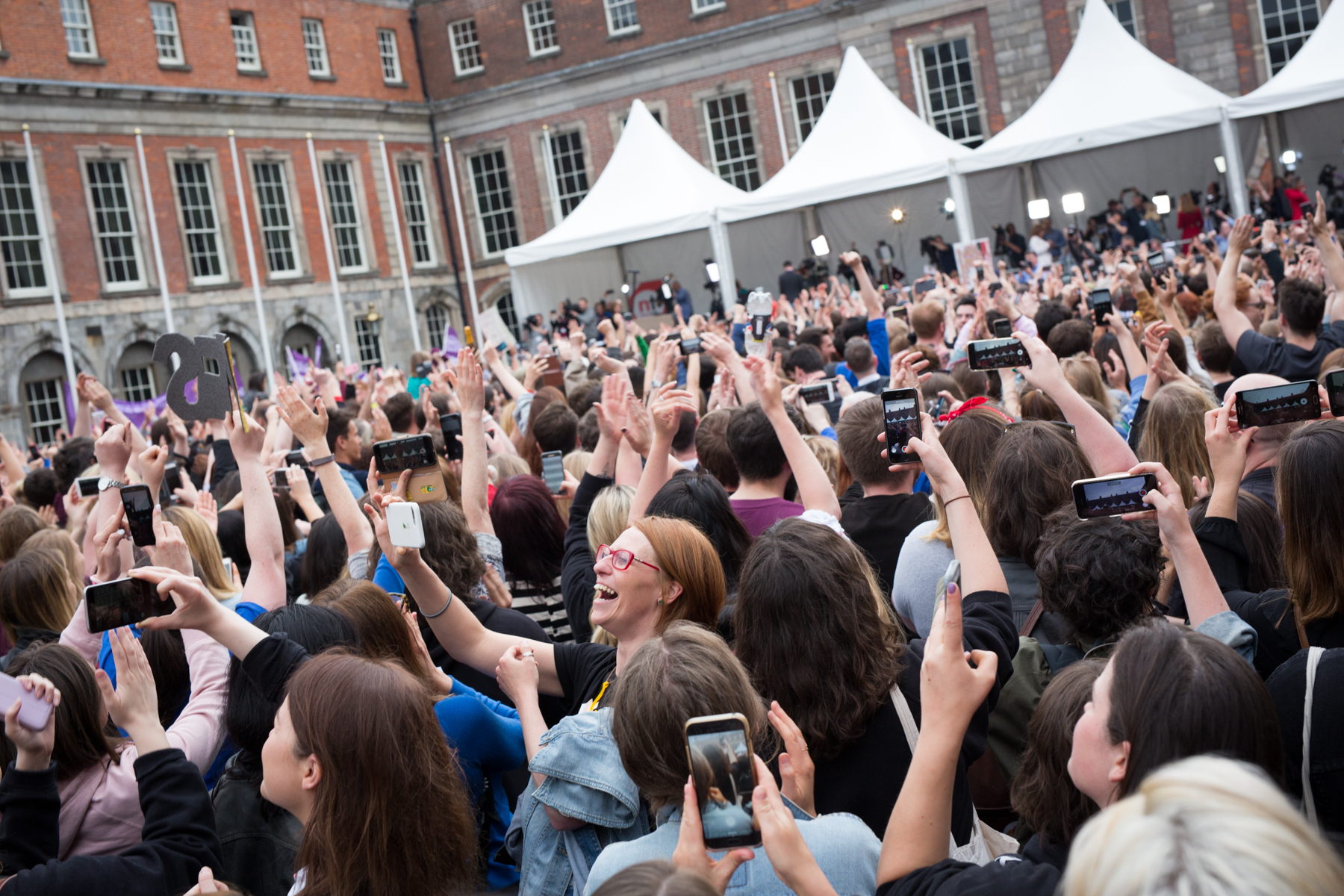
Abortion and the referendum in Ireland
25 May 2018 brought a landslide victory for the Yes campaign to repeal the eighth amendment in the Irish constitution, which effectively gave equal rights to the pregnant woman and the fetus. Before the repeal victory, abortion was only permitted if the woman’s life was at risk but not in cases of rape, incest or foetal abnormality. Such strict laws had dire, and in some instances, fatal consequences for women seeking abortion services. Many women were forced to turn to unsafe abortion methods or to seek safe abortion services in the UK. Following years of campaigning and perseverance, a seismic change in public opinion on abortion had taken place. With the 8th amendment now repealed, Ireland’s Government has committed to delivering legislation which legalizes abortion care on a woman’s own indication in the first twelve weeks of pregnancy. As of January 2018, the Irish Family Planning Association provides early medical abortion up to 9 weeks of pregnancy. Abortion care is free for women living in the Republic of Ireland. For more details please visit www.ifpa.ie. Meet some of the people who tirelessly campaigned to repeal the eighth amendment, what it means to them and the future of women and girls in Ireland. Want to know more about how medical and surgical abortion works? You can watch our explainer videos here. Niall Behan Chief Executive, IFPA One fear we had was that men might see this as a women’s issue and not bother to vote, so we worked hard to engage male voters. Ivana Bacik Labour Party Senator, Leinster House, Dublin My personal reproductive rights journey began when I was President of the Student Union at Trinity College, Dublin in 1989 and I was threatened with prison. Siobhán Silke Communications Officer, IFPA On the day of the vote, there were probably at least 10 women and girls sitting in an airport getting ready to get on flights to go to the UK to seek the care in another country that they should have been able to get in Ireland. Catherine Forde Activist, barrister and former board member of the IFPA The Irish Family Planning Association continued to argue this is a health issue, it's not a matter for criminal law. Dr Cliona Murphy Consultant obstetrician gynaecologist During my medical training abortion really didn't enter the sphere. Like most Irish people I accepted it wasn’t part of our culture. Dr Mark Murphy Doctors for Choice One of the biggest tragedies is that for three months of the campaign you’d turn on the radio and hear cases upon cases of women and couples talking about how the 8th amendment had harmed them. Maura Leahy Director of Counselling, IFPA During the referendum campaign we had people coming for counselling who had abortions 20 or 25 years ago and hadn't spoken to anybody since about it. Alison Spillane Policy Officer, IFPA I think there is a role for Ireland to step up as a country, a country that is traditionally quite conservative, having now in three years passed two very progressive referendums – one on abortion and one on same sex marriage. Maeve Taylor Director of Advocacy and Communications, IFPA This is about a woman, about a woman's decision. It’s about her health, autonomy, dignity - her fundamental rights. Áine Kavanagh Advocacy and Communications Assistant, IFPA Young people are often seen as politically apathetic, but it’s important my generation are involved in the reproductive rights movement. Dr Catriona Henchion Medical Director, IFPA As a doctor I heard so many stories of how abortion law in Ireland caused problems for women.
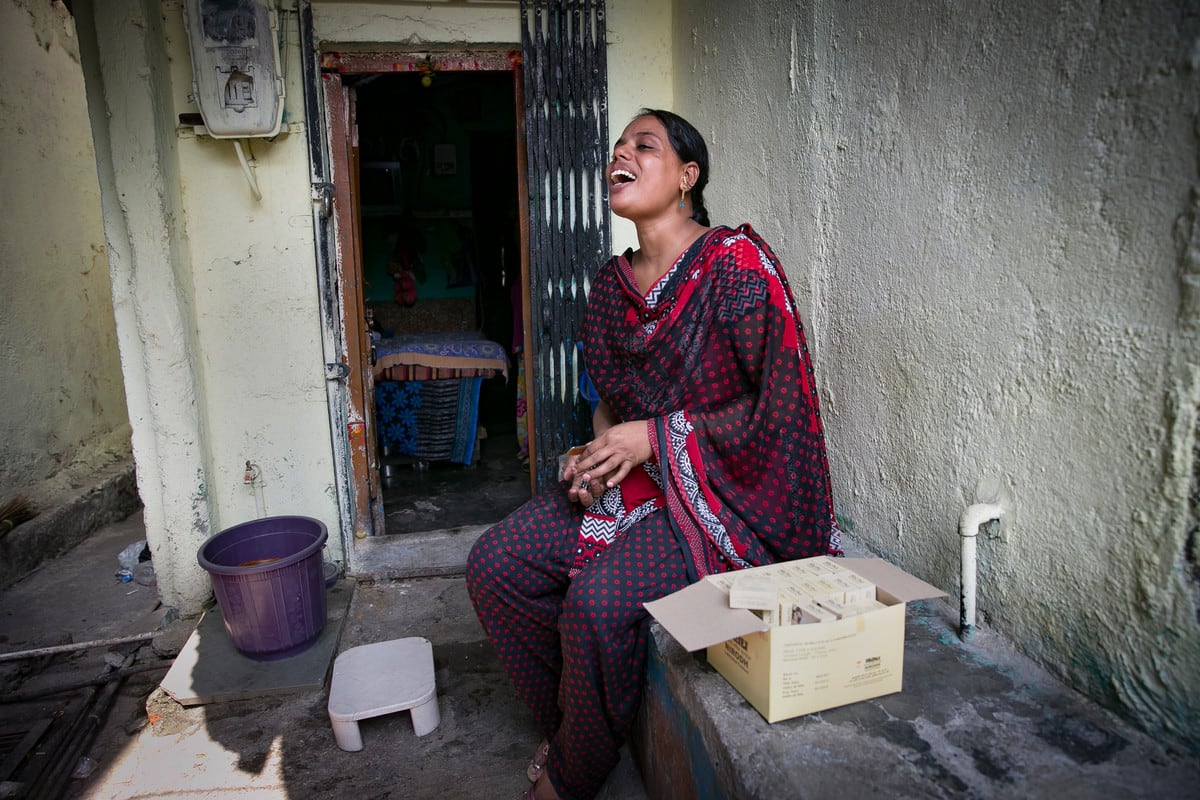
"Selling my body doesn’t make me a bad person"
“Selling my body doesn’t make me a bad person, but working as a peer educator has helped enabled me to help many like me.” Hasina is one of the estimated 1,500 sex workers living in Haunman Tekri, a red-light area in Bhiwandi, a town near Mumbai. When her husband passed away six years ago leaving behind a three-year-old daughter, Hasina turned to sex work as her only option to earn money. She admits that it came with a feeling of powerlessness. "You don't choose this trade; it is the result of life circumstances.” She works as a peer educator with PSK, one of the Family Planning Association of India's (FPAI) clinics. "Working with Parivar Swasthya Kedra (PSK), has made me feel less helpless; it's given me some control over my body; the ability to choose whether or not to bring another life into this world.” Building trust through education Hasina has been a peer educator for three years, working within the district to educate other women on safe sex, contraception, and abortion. Hasina admits she was once wary of PSK workers. "I used to think that these workers who insist we use condoms, would only sabotage my clientele. But soon I realized they were only looking out for us." When talking with local women, Hasina advocates the use of contraception but says in the case of an unintended pregnancy, abortion is a viable option. "It's easy to judge us, but many of us have no choice; we simply cannot feed another on just Rs. 400 a day." Hasina is now the go-to woman in the district when it comes to sexual health. "Since I am one of them, the women trust me." This is the secret behind PSK success; a model where sex workers educate their peers, understanding the complexities and prejudices of their daily lives. "I hope one day I am able to put all of this behind me. But I hope that through PSK I am able to make another woman's life just a little bit safer, a little bit better." Do you want to show your support for women and girls to be free to decide what happens to their body? Pledge your voice to our I Decide campaign,IPPF’s movement for safe abortion access for all. You'll be provided with toolkits on how to talk about abortion and you'll have access to a range of content from personal testimonies to videos explaining the different types of abortion available.
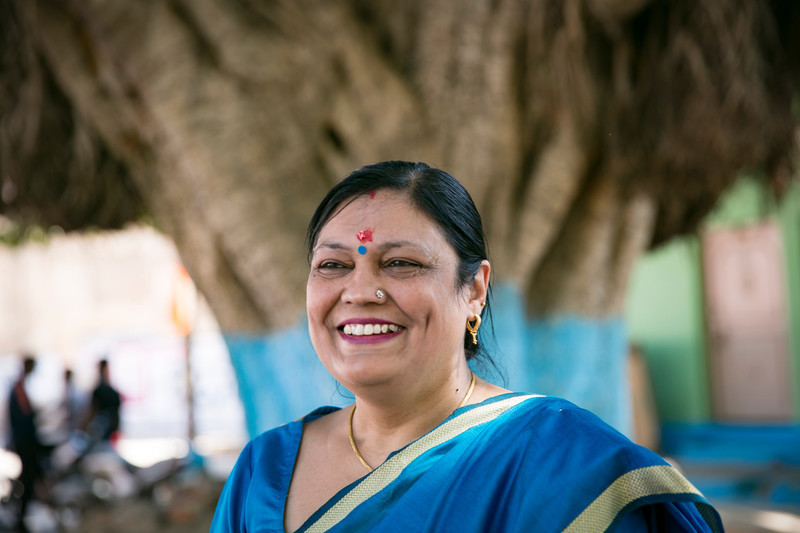
"Most women are from marginalised sections of society and are denied the right to make their own decisions"
In the district of Gwalior in Madhya Pradesh, the summer season has started and the heat in town is already extreme. Here, the Family Planning Association of India GCACI clinic serves many people living in poverty. In the ten years since the GCACI project started there, the clinic has provided 16,301 women with comprehensive abortion care and 202,758 women with contraceptive services. The two-storey clinic is situated in a residential area and, inside, women queue up to see the counsellors and medical staff. Many are accompanied by link workers who have travelled with them from outlying districts. Neelam Dixit is in charge of the branch. “Most women are from marginalised sections of society and are denied the right to make their own decisions. By the time they visit our clinic, the woman is already a couple of months pregnant”. FPA India’s work is making an impact and Dixit is seeing views change on abortion. “There is a shift in attitude among women since FPAI started providing services. Presently, there is little stigma attached to abortion. Our aim is to provide quality health services at low cost. We create awareness about the consequences of unsafe abortion and train volunteers to be sure women in villages are aware of our clinic.” The clinic has served around 300,000 people from rural and semi-urban populations with comprehensive sexual and reproductive health services, and provides both first- and second-trimester abortion services.
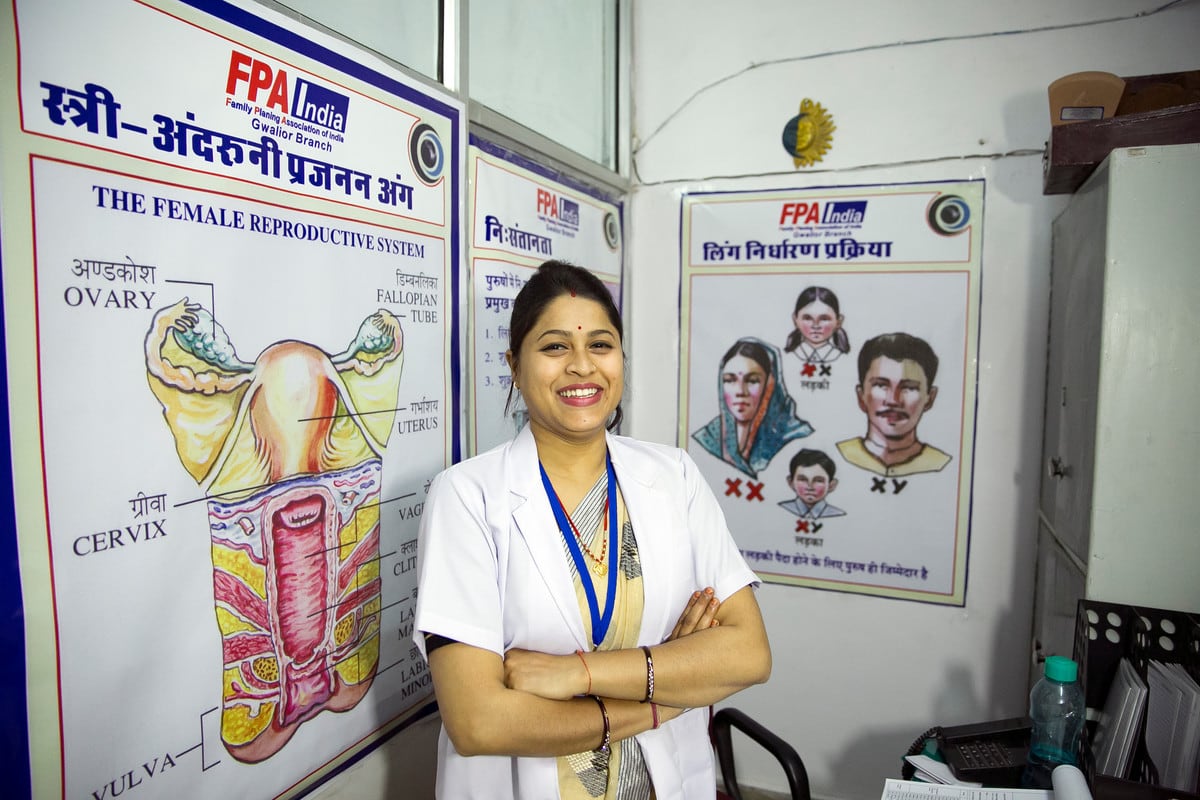
In pictures: Expanding access to safe abortion in India
Konika* Mother of three, Parivar Swasthya Kendra (PSK) client Konika is 20 years old, and the mother of three girls. Like many local young women, she decided to have an abortion when she became pregnant for the fourth time within five years. Citing financial issues as the driving force behind her decision, despite her mother-in-laws desire for her to have another child, hoping this time it would be a boy. Through a neighbour, she approached the PSK clinic in Bhiwandi for an abortion. In Konika’s community, many young women are married and have kids by the time they are 20. Now with PSK, women like Konika have a choice to be pregnant or not. *Name has been changed Share on Twitter Share on Facebook Share via WhatsApp Share via Email Rehkha Parivar Swasthya Kendra (PSK) link worker Family Planning Association of India, works with a network of volunteer link workers, who disseminate information about services available in the PSK clinic, make referrals, and often accompany women to the clinic for support. One of these link workers is Rehkha. Rekha says: "I have been involved with PSK for five years. And today I can proudly say that since the first awareness campaigns, there has been not a single death in the village due to an unsafe abortion." She adds: "These women are my flesh and blood. They know I only want the best for them… Within our communities we spread the message of safe sex and safe abortion through songs and skits which are easily understood. And I think the trick is to include mother-in-laws in our work. We have a high success rate in providing safe abortion care.” Share on Twitter Share on Facebook Share via WhatsApp Share via Email Shajahan Parivar Swasthya Kendra (PSK) link worker Shajahan is a link worker in the nearby Muslim district, where women pack into a house in the narrow village lanes to wait to speak to her. She says: "I am a Muslim. In my community, abortion is frowned upon, and contraception is considered a sin. Initially, the women thought I was going against our customs, and the men thought I was a bad influence on their wives. Some of the men in our area even approached my husband and asked him to order me to stop these efforts." But her husband was supportive, telling other men that it was also their responsibility to be part of the process. It took several years, but eventually Shajahan won the trust of the women and men of her area. "Today, every woman in my area comes to me when it concerns matters of sexual health." Share on Twitter Share on Facebook Share via WhatsApp Share via Email Gauri Family Planning Association of India (FPAI) staff Gauri has worked for FPAI for years and remembers hearing about the experiences of women who’d had unsafe abortions. "I had heard first-hand accounts of [unsafe] abortions that left women reeling in pain, suffering permanent infertility. I had also seen the grief in the faces of men whose wives died. So today when I see women leaving us, after an abortion, in perfect health, I feel like I've done something right with my life." Gauri continues: "My work may have started with one area, but I want to reach every corner of the country with FPAI - so that no woman in India becomes a statistic." Share on Twitter Share on Facebook Share via WhatsApp Share via Email Nisha Mother of two At 23, Nisha Boudh is already a mother to two children and severely anaemic. She feels she is in no position to have a third child, but her in-laws are not supportive. Nisha chose to have an abortion at FPAI’s Gwalior clinic. “I have been weak since childhood and, honestly, motherhood has taken a toll on my health. Doctors in other clinics were not willing help me and I would have died had FPAI not come to my rescue. With their doctors’ advice I have now decided to undergo an operation [tubal ligation] as I do not want to conceive. My mother-in-law was upset with my decision but I want to live to see my other children grow,” said Boudh. Share on Twitter Share on Facebook Share via WhatsApp Share via Email Diti* Sex worker Diti is a sex worker living in Kolkata. She says she, "owes her life to PSK". Diti was forced into an early marriage when she was just 12 years old. "Before my body could even develop, my husband was forcing himself upon me." By the age of 20, Diti had five children. Struggling to cope at such an early age, and married to an abusive husband, Diti ran away. "I don't enjoy having sex with strangers, but I need the money." She makes 300 rupees a day ($4 USD). When Diti became pregnant she didn’t want to continue with the pregnancy. "There's no way I can feed a child. Besides, this is no place to bring a child into the world. Another sex worker recommended the PSK clinic.” Diti was worried about visiting the clinic, fearing stigma and discrimination from staff for working as a sex worker. Her experience was vastly different, finding the clinic team to be welcoming, reassuring and supportive. "They treated me like a human being." Share on Twitter Share on Facebook Share via WhatsApp Share via Email Mala Medical officer “The big problem in this part of India is early marriage and pregnancy. Both of which need to be handled very delicately,” says medical officer Mala Tiwari. “Slowly, things are changing as women are becoming aware of their rights. Previously when GCACI did not exist there was very little interaction with the link workers, and they [and the community] feared it was illegal to get an abortion. They did not know they did not need the consent of their husbands and in-laws. They now know, women have a right over their body.” Share on Twitter Share on Facebook Share via WhatsApp Share via Email Manju Mother of two, Parivar Swasthya Kendra (PSK) client Manju Rana was forced to marry at fifteen. “I have had two children in eight years of marriage,” she says. “My mother-in-law wanted me to keep having children. She does not understand I would not be able to give them a good education if I had more children. My husband is a driver and we cannot afford to have any more. When I learnt I was pregnant, without taking anyone’s permission, I went with the link worker of my area to the clinic and had an abortion.” Manju adds: “In these affordable clinics we can choose about pregnancy. They also made sure I was counselled, as coming to a decision about abortion is not easy.” Share on Twitter Share on Facebook Share via WhatsApp Share via Email
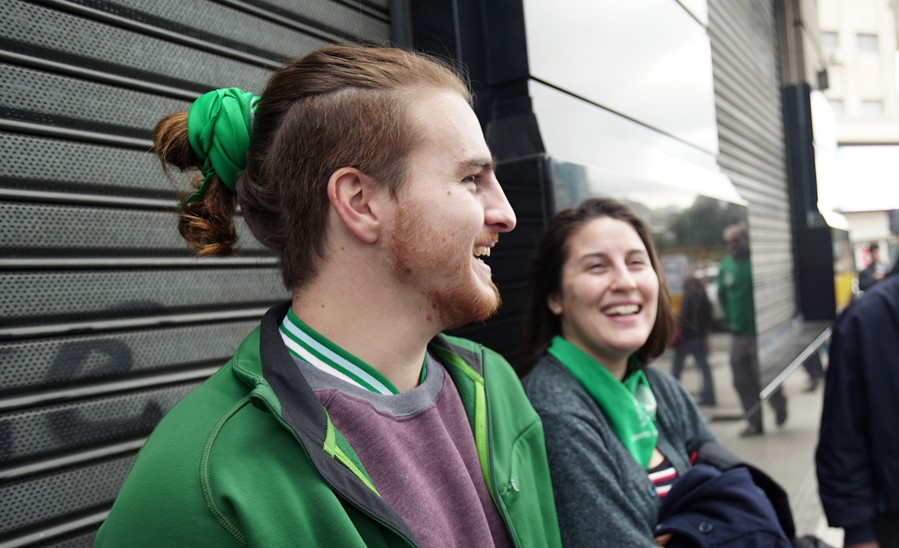
International Men’s Day: 7 ways to be a male ally on abortion
Abortion’s got nothing to do with men, right? Wrong. So, so wrong. This International Men’s Day (19 November) is all about men leading by example, and a great way you can do that is by being a fantastic male ally when it comes to abortion. Here are seven tips to get you started: 1. No judgement If your partner, friend, relative or anyone else in your life is considering an abortion, never judge them or try to sway their decision – and if she wants to talk to you about it, just listen. Deciding whether or not to have an abortion is a deeply personal choice, and it must ultimately be one made by the woman who is pregnant. 2. Respect her decision Once a woman has decided to have an abortion, respect that choice. Her body is her own, and she must always be in control of what happens to it. If a woman you know has decided abortion is the right path for her, trust that she knows what she is doing. 3. Offer to be there If someone close to you is having an abortion, offer to accompany them to the clinic, or to meet up some time after. They might just want and need your company, and a friendly ear to listen to them. Equally, if they wish to be alone, that’s OK too. 4. Accept her emotions... Having an abortion can be an emotional experience for a woman. Whether they seem happy, sad, relieved, angry, scared or any other emotion – or none at all – accept their feelings and do not judge or question their reactions. Their emotions and feelings are unique to them alone. 5. ...and your own Abortions can be very emotional experiences for men too. If your partner is considering one, or has had one, it is important to communicate respectfully with her about what you are going through. Or you might want to talk to someone else about it instead. Consider seeing a counsellor who can help you process your feelings healthily. 6. Consider the cost Abortion procedures can be costly, which often leads to additional stress for those seeking one. If you were involved in the pregnancy then offer to share the financial burden so it’s one less thing for the woman to worry about. 7. Talk about it Abortion is an everyday procedure that many women will experience, but it is still shrouded in stigma in many circles. We all have a responsibility to break that stigma and to educate ourselves, and this can start with something as simple as striking up a conversation with a friend about abortion. Want to know how to do this? Pledge your voice to I Decide, IPPF’s movement for safe abortion access for all – we’ll send you all the resources you need to get you started. You can also find videos explaining the different types of abortion, personal testimonies, frequently asked questions (with answers!), podcasts, reports and much more. Got more recommendations to add to the list? Let us know! IPPF is a key player in the fight for safe abortion worldwide. In 2017, our projects averted 1.7 million unsafe abortions, and we delivered nearly 5 million abortion-related services globally.
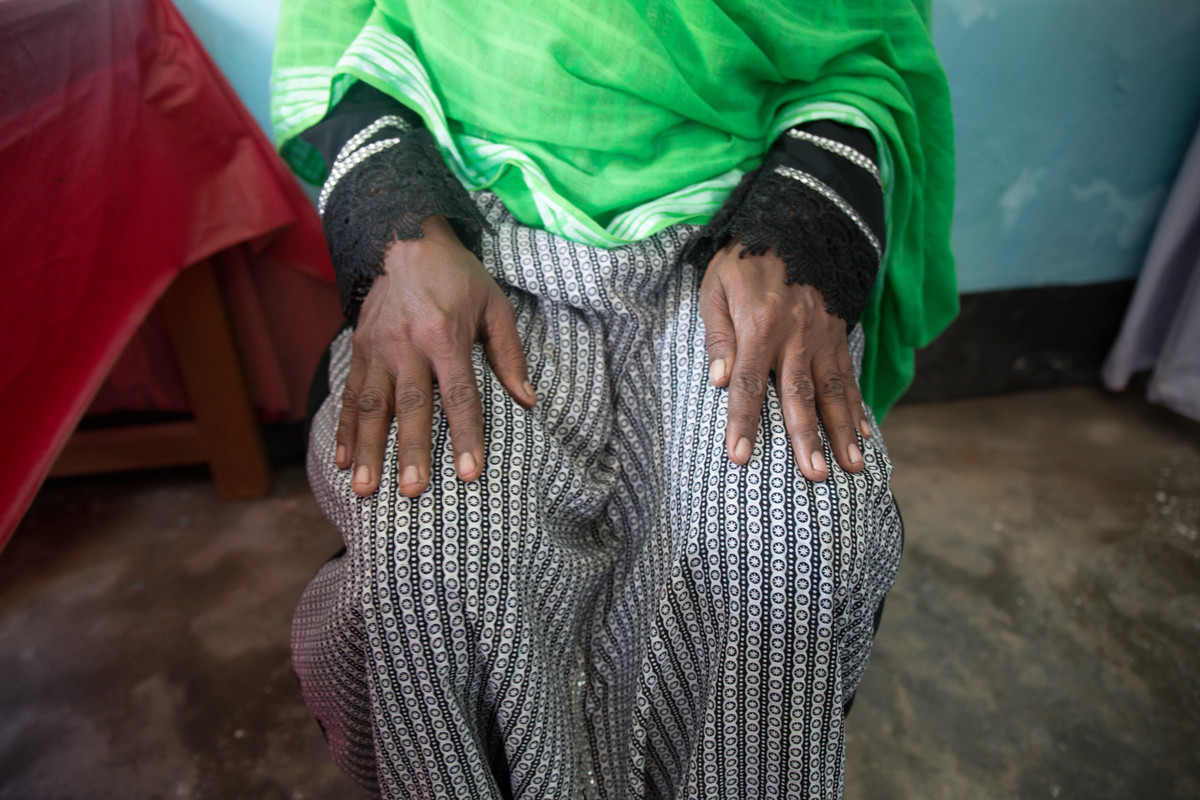
“I was faced with a forced pregnancy. I was a victim of the law.” – Dayani’s story
This account was told by Dayani* to Youth Action Network Sri Lanka, and contains details of sexual assault that some may find upsetting. I was separated from my parents in India when I was small and so came to live with my grandparents in Sri Lanka. As soon as I turned 18 and left school, they wanted to marry me off. I didn’t want to marry at such a young age. I was young and I had dreams – I wanted to work, to study, to really live my life before becoming a wife. I didn’t see any other option that to leave my grandparents, and I moved to Colombo to seek the life I wanted. I was alone and making a fresh start. I was lucky to find a job soon and it paid well enough to allow me to continue my studies and live. I was boarding with a friend and I was feeling good. As a part of my work, I had to attend an event. That was when I first met R. R happened to be a friend of a friend, so I met him on multiple occasions and he was clearly interested in me, yet I took my time and did not give him any indication of interest or commitment. After spending time together, my interest and affection for him began to grow and eventually developed into more intense feelings of love. He planned the whole thing One day, we went to the beach together. We were teasing and pushing each other by the water, and I got wet by the waves. I was not in a position to travel on public transport with wet clothes and I told him I needed to change. We went to a shop to get some clothes and then we had to think of a place to get changed. He said he knew a place and he took me to a place where there were rooms. He got access to a room – we didn’t even have to show our identity – and it became clear to me that he had been here before as the staff seemed to know him. When I went inside the room, I asked him to wait outside, as I would finish dressing soon and meet him after. He didn’t listen to me. He overrode my wishes, and raped me. I realized now that he had planned the whole thing. Almost everything. From the beginning. It took me a few months of not having my period to realise that I was pregnant. I was almost four months into it. I felt absolutely helpless and I didn’t know what to do. I was raped and I didn’t want to go through with this pregnancy. I wasn’t ready, I was in the city alone, and I was in no condition to support myself. Alone, depressed, devastated I contacted R and he told me he would get me the pills for a medical abortion. I somehow got the money together and gave it to him for the pills, but he disappeared with the money. Then I sold a gold chain I had to make the money to try for the pills again, yet going through this medical abortion did not work. I was alone, depressed, and devastated. We are working to ensure no one goes through a horrifying ordeal like this again. IPPF, directly and through its hosted Safe Abortion Action Fund (SAAF) partners, delivers a range of abortion related services, including pre- and post-abortion counselling, surgical and medical abortion, and treatment for incomplete abortion. Masitula, a mother-of-two and sex worker from Uganda is one of those who have benefited from this support through SAAF – read her story now. In 2017, IPPF projects averted 1.7 million unsafe abortions, and we delivered nearly 5 million abortion-related services globally. Play your part by joining I Decide, IPPF’s movement fighting for safe abortion access for all. Through a network of contacts, I finally found a place where I would be able to terminate my pregnancy. It was extremely costly and I had to ask for help not just from friends but also from strangers because I could not afford it myself. I was scared, feeling insecure about my life and my safety, yet I didn’t feel as though I had any alternative but to go ahead with a potentially life-threatening procedure. I experienced many physical complications following this. Additionally, I was tackling the mental strain of feeling hatred towards R and what he had done to me. I would see him leading his normal and comfortable life amidst all my pain. I was going through trauma and there were times when I wanted to end my life. To end it all. No faith left I didn’t want to share my story with anyone because people would judge me. They would blame me for putting myself in this condition – for leaving my grandparents, for not agreeing to the marriage, for living alone in Colombo, for having a boyfriend, for wearing the clothes I wore, for being raped, and for undergoing an abortion. My family, society, culture, religion, legal setting, the patriarchy and the oppression has made me feel as though I am the perpetrator. I don’t have faith in life, love or people. It will take me years to trust a man again and to forget what happened to me. Honestly, I don’t know whether I will be able to ever forget what I went through. I was raped and I was in no condition to report it. I was faced with a forced pregnancy. I was a victim of the law. *Dayani's name has been changed to protect her identity.
Pagination
- Previous page
- Page 8
- Next page







